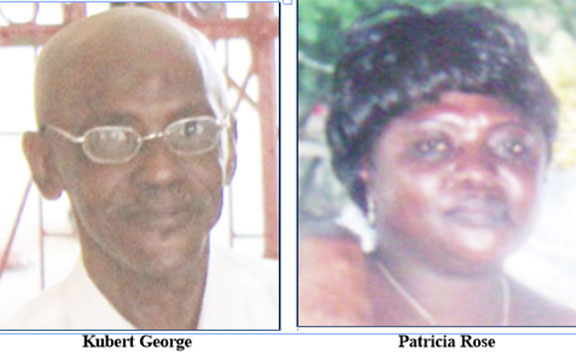The Guyana Court of Appeal yesterday afternoon changed the conviction of Kubert George, who killed his former partner, from murder to the lesser count of manslaughter, after finding that there had been several irregularities by the trial judge in the summation of the case to the jury.
The court also reduced the sentence of 60 years that had been imposed upon George to 20 years.
George had been convicted by a jury in 2013 for the murder of his former partner, Patricia Rose.
Delivering the ruling of the court, Justice of Appeal Arif Bulkan said, among other things, that there were a number of errors committed by the trial judge in his summing up of the case to the jury.
Among them, he said, was that the appellant’s defence had not been adequately put to the jury by the trial judge.
Following the delivery of judgment and having considered all the circumstances of the case and submissions made by both the defence and state, the appellate court informed George that his sentence would be reduced to 20 years.
Justice Bulkan then further informed him that his conviction for murder would be substituted with one for manslaughter.
Although considering that George was a first-time offender, was 62 at the time of his conviction and had been incarcerated for some three years and 10 months prior to the commencement of his trial, the court noted that the aggravating factors needed to also be considered.
It was in this regard that Justice Bulkan pointed to the level of domestic violence in society and especially that which is meted out to women by their partners.
He decried the reports not only in the press, but which the courts are confronted with sometimes on a weekly basis, of women losing their lives at the hands of their partners.
The judge noted that it was the duty of the court to ensure protection of the public, while noting that society must be put on notice that such violence would not be treated lightly by the courts.
George was then informed of his 20-year sentence and the substitution of the capital conviction for that of manslaughter.
Representing the appellant was attorney Tanya Warren-Clement. The state, meanwhile, was represented by attorney Sonia Joseph.
In his appeal of the conviction and 60-year sentence, George had said that Justice Navindra Singh, who conducted his trial, had made several errors.
He contended, among other things, that the judge erred in law in failing to withdraw the case from the jury, while arguing that there was no “nexus between the alleged injury and cause of death.”
According to him, by sending the case to the jury, the judge caused the jury to speculate.
George had also argued that the sentence imposed was severe and unduly harsh, given his age.
On February 21st, 2013, a jury unanimously found George guilty of killing Rose, who succumbed in hospital months after she was attacked on November 1st, 2008. Justice Singh, thereafter sentenced George to 60 years.
Though Rose was stabbed in 2008, she succumbed to her injuries on May 8th, 2009.
The prosecution’s case was based on George’s statement to the police, in which he confessed to stabbing Rose, which was admitted as evidence at the trial.
He had told police that he went to Rose’s workplace and called for her. He said she answered and told him she “ain’t able get up, I must jump de gate and I jump de gate with my haversack containing a kitchen knife, food and other things.”
George, according to the statement, further related that after he scaled the fence, he started to gaff with the woman, who asked him for some money. He said he told her that the money he had was intended to buy rations and kerosene.
Police said he claimed Rose scrambled his clothes and “I pull out de knife out a me bag and I juk she up plenty times about she body and face. I walk out after juking she up with the knife, which is about six inches.”
However, in a sworn statement at trial, he stated that he did not confess to the crime and accused the police of fabricating the confession.
George’s appeal was heard by Justice Bulkan along with acting Chancellor Yonette Cummings-Edwards and Justice of Appeal Dawn Gregory.





